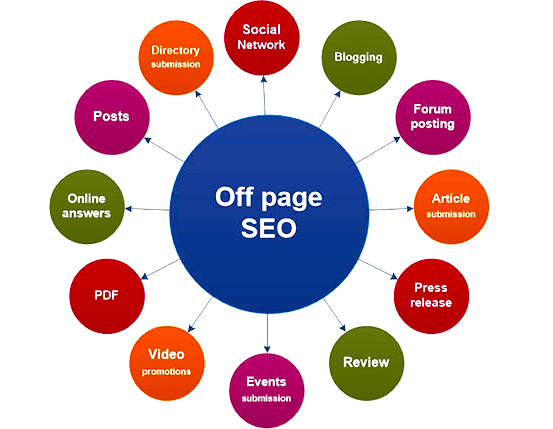Offsite SEO is about building your site’s trust. It focuses on how other websites talk about or link to your site. Search engines look at these links as signs of your site’s value. The more good links you have, the better your site can rank. Below are common methods people use to build links.

2-Way and 3-Way Link Exchange
A 2-way link exchange is simple. Site A links to Site B. In return, Site B links to Site A. This is also called reciprocal linking. It used to work well, but search engines now see it as basic and sometimes suspicious.
A 3-way link exchange is better. In this case, Site A links to Site B. Site B links to Site C. Site C then links back to Site A. This makes it less obvious that links are being traded.
Still, use these with care. Search engines prefer natural links over trades. Only do this with trusted site owners who have related content.
Profile Linking
Many forums and websites allow users to make profiles. When you sign up, you often get to add a short bio. This is where you can place a link to your site.
Be careful not to spam. Only place your link where it makes sense. Use forums that relate to your business. If your site is about car washes, join a forum about car care.
Profile links are not strong alone, but they help build a base of mentions online!
Article Creation on Submission Sites
You can write short articles and post them on submission sites. These platforms let you place a link in your author bio or within the text.
Make sure your article is helpful and clear. Do not use the same text on every site. Write a new article for each platform. Add a link that connects to a related page on your site.
This method builds authority and creates backlinks over time.
Blog Creation on Web 2.0 Sites
Web 2.0 platforms like WordPress.com, Blogger, and Medium allow you to make free blogs. You can use them to post content with links to your main site.
Each blog post should be real and useful. Don’t just create a blog with one short post and a link. Add real value. Treat these blogs as part of your brand.
Post at least a few articles and space them out over time. This looks more natural and helps search engines trust the content.
Blog Commenting
Many blogs let readers leave comments. In the comment form, there is often a place for your name, email, and website.
Leave helpful comments that relate to the post. Don’t force your link. Just include it in the website field.
Do not use fake names or leave empty praise like “Great post!” This looks like spam and won’t help your SEO.
Forum Posting
Forums are message boards where people discuss topics. Join forums related to your niche. Make a profile and take part in the conversations.
Many forums allow links in your signature or profile. Some also let you include links in your posts, as long as they add value.
Focus on being helpful. Don’t post just to drop a link. Answer questions, share advice, and join threads where your knowledge fits.
Link Baiting
Link baiting means creating content that others want to share or link to. This could be a strong guide, a free tool, or a useful chart.
Once the content is live, you can contact webmasters or writers. Ask them to check it out. If they find it useful, they may link to it.
This takes a lot effort, but the links you get are natural and trusted! I definitely recommend trying!
Registration Sites
Some websites collect information about other websites. You can register your site with them. Examples include analytics trackers, business listing sites, or review platforms.
These sites often give you a profile page. You can list your website URL there. This creates more mentions of your site on the web.
Directory Submissions
Web directories list sites by topic or industry. Some are paid, some are free. You can submit your website to get listed.
Pick directories that look clean and well-kept. Avoid ones that accept any site without review. Low-quality directories may hurt more than help!
Social Bookmarking
Social bookmarking sites let users save and share web pages. An example is Reddit.
You can share your blog posts or pages on these sites. Use good titles and short descriptions. If the site has tags, add relevant ones.
But just like other methods, don’t spam. Focus on sharing good content that people want to click.
Offsite SEO takes time. Do not rush or use tricks. Search engines look for real, steady growth. If you build links slowly and honestly, your site will gain trust and traffic.
Avoid buying links or using software to create them. Stick to real methods that add value.
Thank you for reading this blog! Please feel free to leave a comment and I will get back with you as soon as possible> If you want to stay ahead, read more in our guide: 2025 Michigan AI and SEO Trending Concepts.
Leave a Reply